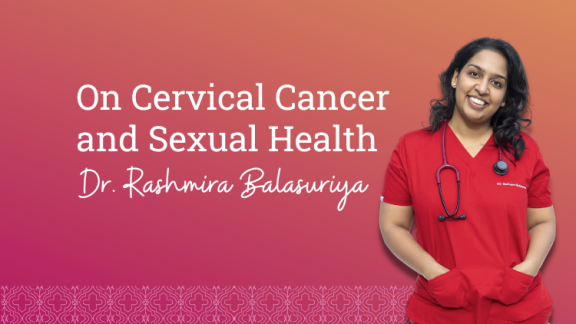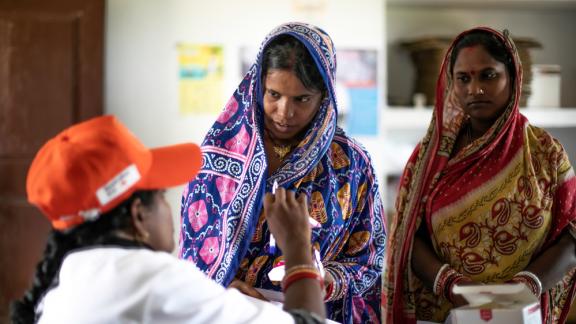Human papillomavirus (HPV) is a virus that can cause cervical cancer by infecting cells in the cervix and causing them to become cancerous. In fact, HPV is responsible for more than 90% of all cases of cervical cancer.
We recently had the pleasure of interviewing a private medical practitioner from Sri Lanka with extensive knowledge into condoms and contraception, Dr Rashmira Balasuriya. During our discussion, she emphasised the importance of prevention when it comes to cervical cancer. Here are five tips that Dr Balasuriya recommends for preventing cervical cancer.
1. Get regular Pap smears
According to Dr Balasuriya, regular Pap smears are the most important tool for preventing cervical cancer. A Pap smear is a simple test that involves collecting cells from the cervix and examining them under a microscope to look for any abnormal changes. It is recommended that women start getting Pap smears at age 25, and continue to get them every three years until age 65 (according to the UK cervical cancer screening programme). If you have a history of abnormal Pap smears, you may need to get them more frequently.
2. Get vaccinated against HPV
HPV is responsible for more than 90% of all cases of cervical cancer. Dr Balasuriya recommends that all boys and girls get vaccinated against HPV at age 11 or 12, before they become sexually active. The vaccines (Cervarix & Gardasil quadrivalent) is also recommended for young adults up to age 26 who did not receive it when they were younger.
3. Practice safe sex
Practicing safe sex can also help reduce your risk of cervical cancer. HPV is spread through sexual contact, so using a condom can help reduce the risk of the virus from being passed from one person to another. It's also important to limit your number of sexual partners, as having multiple partners increases your risk of contracting HPV.
4. Quit smoking
Smoking is a known risk factor for not only cervical cancer, but many other cancers. According to Dr Balasuriya, women who smoke are at a higher risk of developing cervical cancer as opposed to non-smokers. If you're a smoker, quitting can help reduce your risk of developing cervical cancer, as well as other types of cancer and respiratory diseases.
5. Maintain a healthy lifestyle
Finally, maintaining a healthy lifestyle can help reduce your risk of developing cervical cancer. Eating a healthy diet that is rich in fruits and vegetables can provide your body with an efficient immune system that is needed to fight off cancer. Regular exercise can also help boost your immune system and reduce your risk of developing cancer.
In conclusion, cervical cancer is a serious and common disease that affects women worldwide. However, by following these five tips recommended by Dr Rashmira Balasuriya, you can significantly reduce your risk of developing cervical cancer.
Did we miss anything? Let us know!
when









